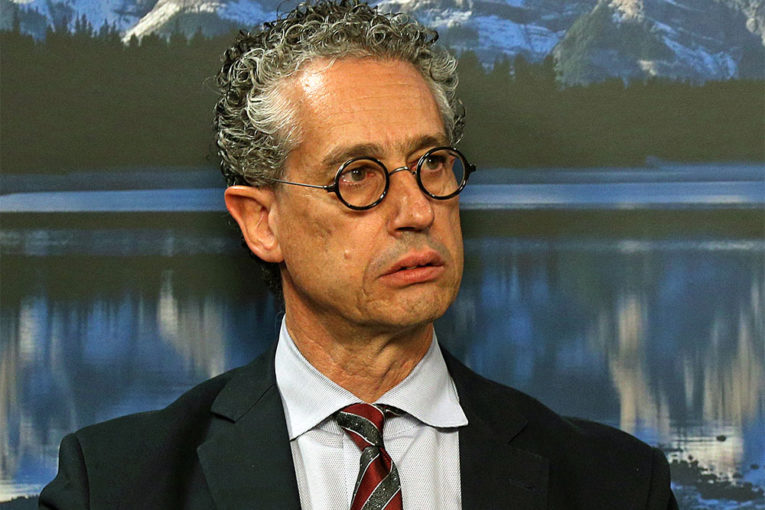
This year’s ARC Energy Investment Forum offered a marquee array of presenters and presentations — impeccably conducted by the ARC Energy Institute’s Peter Tertzakian and Jackie Forrest — that continued to push the boundaries of where the energy sector needs to go in order to remain competitive.
And the intent of the material was to ensure not much was left to interpretation.
In other words, whether the subject matter was analytics, the application of new technology or how workplaces need to be designed to minimize silos and encourage collaboration, there was no missing the need to change and adapt in order to remain competitive.
That means winning.
Fittingly, then, this year’s conference cast on the sports theme of Playing to Win that saw both Tertzakian — clad in a number of loud jackets that would easily compete with Don Cherry’s wardrobe — and Forrest quiz panel members in a format reminiscent of the post-mortems conducted on TV after sporting events.
That meant punchy questions and answers — rather than long-winded responses that often leave an audience wondering exactly what the answer to the question really was.
One of the key messages of the sessions was that the capture, analysis and application of data in the energy sector is the final frontier on a road to long-term sustainability and competitiveness.
Being able to do this successfully, when the number of data points gathered from the operation of one well can capture the equivalent of 15 years’ worth of movies in the context of the time it would take to review it in a conventional sense, is a challenge.
And that is why Google and Canvass Analytics were in the room offering their perspectives.
As Sha-Chelle Manning, the director of corporate innovation at Pioneer Resources said, the company is pushing toward increasing production threefold, without costs increasing by the same magnitude.
One way to do that is by using what she defined as computational analytics to optimize the physical tools.
But where things almost got into the sci-fi realm was listening to Kenton Prindle, a geophysicist now working with Google Cloud as a solutions engineer.
Google has mapped the above-ground world and isn’t stopping there. The global tech giant is now focusing on mapping what is below ground, aiming to build a stratigraphic map so that each layer can be understood.
And if there is one way to look at what is possible, when Google completes that task — which will be done as an open-source model — it is that it achieves the democratization of the earth’s geology and, in a way, makes the world flat because everyone has access to the data.
And, important to keep in mind in this context, is the fact Alberta has a huge advantage in this regard because our data is easily accessible relative to the U.S., where the data tends to be pulled together by company and by play rather than formally aggregated by a government agency.
But data without people is useless.
Which is why the inclusion of a panel on workspaces might have looked out of place, but was in fact an important addition to the day’s conversation.
Not only do work spaces need to be inviting and facilitate connections amongst employees, they need to be structured with the understanding that the workforce of today — the Millenials, Gen X and Gen Y — can turn any space into a work space as long as they have the ubiquitous knapsack that contains a laptop or tablet, charging cables, cellphone and a water bottle.
Companies need to think about what they need to do to get the workforce of the future through the doors.
Building the culture is important from a number of perspectives, including that it is daunting to undertake a direction within a company that involves taking a risk and harnessing the potential of AI. The concept in itself is a daunting one — and the advice on Wednesday was that the way to be successful and overcome the discomfort in working with something that is so new is to start small and build on the successes.
It’s not unlike the advice offered by parents to their children when overwhelmed by a situation: Tackle the task like you would eat an elephant — one bite at a time.
And just in case no one got the message on the importance of culture and teamwork, it was reinforced at the end of the day in a conversation between Sean Burke — general manager for Canada’s 2018 men’s Olympic hockey team — and Forrest.
Without teamwork and a strong culture, no company or sports team has a chance at winning.
Layer on top the disruption underway in the energy sector that is going to continue as the Googles and Microsofts of this world see the potential to apply their knowledge, and the message every delegate would have walked away with Wednesday is how steep the innovation curve has become — and that not having the requisite suite of skills and tools, along with the right players, means you get outplayed and outmanoeuvred by the competition.
You can read more of the news on source
